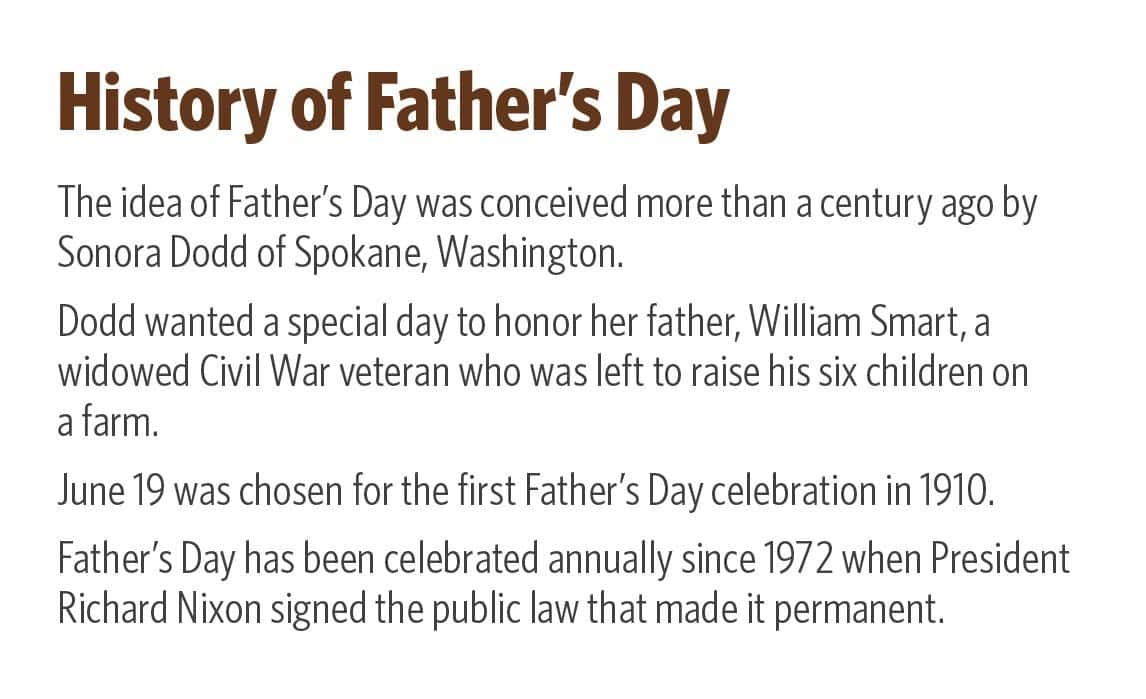Celebrating Dad: The Heartwarming Tale Behind Father’s Day
Welcome, lovely parents and curious readers! Today, we’re about to embrace a journey through time, delving into the history of Father’s Day. It’s a day brimming with love, heartfelt memories, and a sprinkling of gratitude for all the dads and father figures out there. So grab your favorite snack, cuddle up, and let’s explore the roots of this special occasion that brings smiles across families worldwide!
When Did the Fatherly Affection Begin?
The history of Father’s Day is as enchanting as the day itself. Like all wonderful stories, it began with love and a deep appreciation for one’s parent. It all started in the United States in the early 20th century. The idea was sparked by the thoughtful musings of Sonora Smart Dodd, who believed that fathers deserved just as much recognition as mothers, who were already celebrated through Mother’s Day.
A Daughter’s Love: The Inception of Father’s Day
Sonora Smart Dodd, a loving daughter from Spokane, Washington, felt in her heart that fathers, like her own, needed a day for themselves. She was inspired by her father, William Jackson Smart, a Civil War veteran and a single dad who raised her and her five siblings with steadfast dedication after their mother’s untimely passing.
In 1909, while listening to a Mother’s Day sermon at church, Sonora pondered over the idea of dedicating a day to honor fathers. She proposed the idea to her local community and pastoral authorities. With their support, she began to advocate for the idea, choosing her father’s birthday, June 5th, as the ideal date to celebrate Father’s Day.
From Local Celebration to National Recognition
Though the first Father’s Day was celebrated locally in Spokane on June 19, 1910, it took several decades for the idea to gain nationwide traction. Despite the support it received from various communities and notable figures like President Woodrow Wilson, who in 1916, celebrated Father’s Day with his family, it was not until 1966 that President Lyndon B. Johnson issued the first presidential proclamation honoring fathers, designating the third Sunday in June as Father’s Day.
However, the struggle for official recognition was ongoing. It wasn’t until 1972 that President Richard Nixon finally signed a public law that made Father’s Day a permanent national holiday. Ever since, the third Sunday of June has been set aside to honor fathers, grandfathers, stepfathers, and important father figures.
The Expanding Impact of Father’s Day
As the years went by, the celebration of Father’s Day grew beyond its American roots to gain popularity in various parts of the world. Different countries adopted this heartfelt tradition, sometimes merging it with their own customs and cultural nuances, to honor paternal bonds and fatherhood.
Today, Father’s Day stands as a testament to the long journey from a daughter’s love to an international observance. It’s a day when we pause to reflect on the impact fathers have on our lives, acknowledging their love, strength, and the wisdom they share.
Stay tuned for more joyous tales and intriguing insights as we continue our exploration of Father’s Day and delve deeper into how this celebration has evolved and what it means in modern society.
In an age where fatherhood comes in many forms, it’s fascinating to see how Father’s Day remains a versatile celebration, adaptable to the changing dynamics of family life. Whether it’s a day filled with homemade cards, a sumptuous feast, or quiet reflection, Father’s Day continues to bring us together, strengthening the familial bonds that color our world with love.
It’s not just another Sunday. It’s a day carved out of the calendar to say, “Thank you,” to express, “We love you,” and to show appreciation for the men who help shape our world. How wonderful it is to have a day dedicated to the superheroes in our lives who may not wear capes but certainly deserve the recognition!
So, as we get ready to mark the next Father’s Day on our calendars, let’s remember to cherish not only the history behind this day but also the countless memories and stories that will weave into the fabric of future celebrations. Get ready to dive deeper into the celebrations, customs, and unique Father’s Day traditions from around the globe in our upcoming sections!

5 Things Parents Should Know in Preparing for the History of Father’s Day
1. Understanding Its Significance Helps Foster Appreciation
It’s essential for parents to know the historical significance of Father’s Day to imbue the celebration with a deeper sense of appreciation. Dive into the origins of this day with your children. Sharing the story of Sonora Smart Dodd and the decades-long journey towards the holiday’s official recognition helps to educate and remind families why it’s more than just a date on the calendar—it’s a day steeped in love and respect for fatherhood.
2. Recognize and Honor Varied Father Figures
Preparation for Father’s Day is not only about honoring biological fathers. It’s about recognizing all the father figures in our lives, including stepfathers, grandfathers, uncles, mentors, and family friends. These individuals often play a critical role in the nurturing and upbringing of children. Celebrating the diverse forms of fatherhood can make the day more inclusive and meaningful for everyone involved.
3. Incorporate Educational Activities
Parents can prepare educational activities that surround the theme of Father’s Day. These can include crafting sessions where children can create handmade gifts, cards, or write thank-you notes expressing their feelings towards their fathers or father figures. You can also organize a storytelling hour where family members share their favorite anecdotes about the father figures in their lives, fostering a feeling of connectedness and respect for the generations.
4. Start New Traditions Based on Historical Ones
If you’re looking to add more substance to your Father’s Day celebration, consider starting new traditions based on historical ones. Whether it’s revisiting the places your family’s patriarchs cherished, preparing their favorite meal, or simply retelling their stories, creating a bridge between past and present can make for an enriching experience that honors the enduring legacy of fathers.
5. Plan Ahead for a Day of Reflection and Joy
Finally, the best way to prepare for Father’s Day is by planning ahead. Create an atmosphere of reflection, joy, and relaxation. It could be organizing a family outing, a picnic in the park, or perhaps a quiet day at home filled with favorite films and games. The idea is to make the day stress-free and centered around the celebration of fatherhood, giving everyone a chance to express their gratitude and love.
By keeping these insights in mind, parents can prepare for a Father’s Day that not only honors the historical significance of the occasion but also strengthens the bond between children and the influential father figures in their lives. Enjoy creating a day that reflects the unique tapestry of your own family, filled with joy, thoughtfulness, and lots of love.
Remember, the true spirit of Father’s Day lies in recognizing and celebrating the different ways that dads and father figures contribute to our lives, and teaching young ones the value of appreciation and heritage can turn a simple holiday into a rich tradition. So let’s count down the days until we pay homage to the special men in our lives with festivities and reflection that go hand in hand with Father’s Day’s storied history.
See more great Things to Do with Kids in New Zealand here. For more information see here
Disclaimer
The articles available via our website provide general information only and we strongly urge readers to exercise caution and conduct their own thorough research and fact-checking. The information presented should not be taken as absolute truth, and, to the maximum extent permitted by law, we will not be held liable for any inaccuracies or errors in the content. It is essential for individuals to independently verify and validate the information before making any decisions or taking any actions based on the articles.




